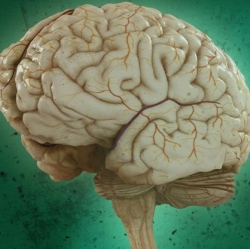
People who experience frequent drops in blood pressure or dizziness when suddenly standing up are at increased risk of dementia, scientists say. Writing in Plos Medicine they suggest that less blood reaches the brain during these moments, leading to brain cell damage over time.
Dementia experts say this is a "robust study" and "plausible explanation" that needs further investigation. Charities point out that factors such as smoking carry higher risks.
But they say the work adds to growing evidence that changes in blood pressure have an impact on the brain.
Previous studies have linked high blood pressure to types of dementia. But in this paper scientists focused on transient periods of low blood pressure – also known as postural hypotension – which become more common in older age.
These episodes can sometimes leave people feeling dizzy or give them "head rushes" when standing up suddenly. Researchers from the Erasmus Medical Center, in the Netherlands, tracked 6,000 people for an average of 15 years.
They found those who suffered repeated periods of low blood pressure on standing were more likely to develop dementia in the years that followed.
Researcher Dr Arfan Ikram said: "Even though the effect can be seen as subtle – with an increased risk of about 4% for people with postural hypotension compared to those without it – so many people suffer from postural hypotension as they get older that it could have a significant impact on the burden of dementia across the world."
He told the BBC: "If people experience frequent episodes of dizziness on standing, particularly as they get older, they should see their GPs for advice."
But he added that young people, who have one-off episodes of dizziness when standing up because of dehydration for example, should not be unduly worried.
Prof Tom Dening, from Nottingham University, described the research as "an important study".
He added: "The suggestion is that feeling dizzy, which results from a fall in blood pressure, may interfere with the circulation of blood round the brain and that over time, this causes damage which may contribute to dementia.
"This is a plausible hypothesis and has support from other research. It is possible that something else may be going on."
He said: "A dizzy spell is not a death sentence nor does it mean you are certain to develop dementia.
"On the other hand, if this problem occurs frequently, then it is worth seeing your doctor as there may be remediable causes, for example if you are taking medication it should be reviewed."
Dr Laura Phipps, of the charity Alzheimer’s Research UK, said: "While the risks found in this study are reasonably small compared to other known risk factors for dementia, it adds to a growing and complex picture of how blood pressure changes throughout life can impact the brain.
